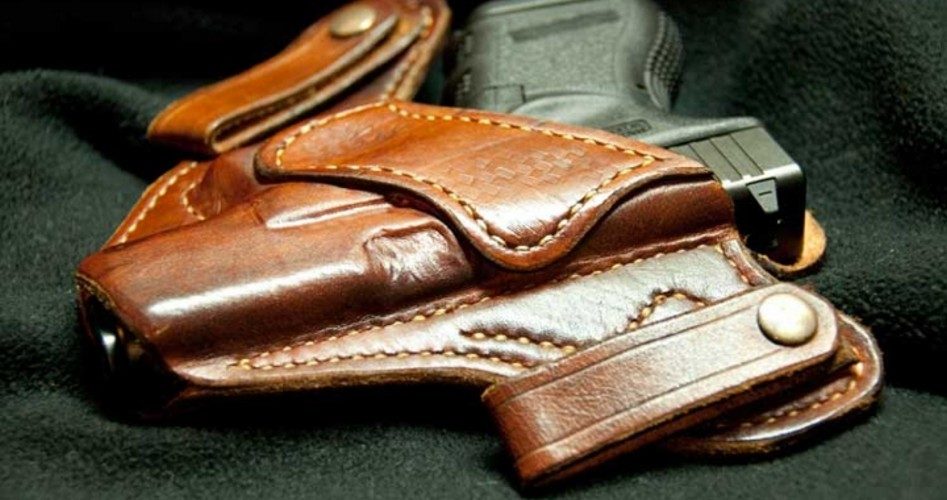
If Governor Pat Quinn signs the bill passed last week in the state legislature, Illinois will no longer be the only state in the American Republic without a legal provision for state residents to carry concealed firearms. On Friday, the legislature rushed through a bill allowing for limited concealed carry, as Democrats neared the deadline that the Seventh Circuit Court of Appeals had given them to bring the state into compliance with the provisions of the Second Amendment of the Bill of Rights. However, what remains to be seen is whether the new law will be recognized by the court as fulfilling the stipulations of its ruling late last year.
As reported for The New American last December (“Concealed Carry Coming to Illinois”), the Seventh Court gave the legislature 180 days to reform the state’s gun laws; otherwise, the court would strike down the statute. However, the ruling came out only days before the tragic shooting at Sandy Hook Elementary School in Newtown, Connecticut. In the intervening six months, the legislature has weighed a variety of new gun control laws — even as state lawmakers knew that action would have to take place to comply with the ruling of the court. In February, Attorney General Lisa Madigan attempted to get the full Seventh Court to reverse its early ruling, but a majority of the court upheld its previous determination on the basis of law, not a perception of public sentiment.
With a June 9 deadline looming, the final bill was raced through the legislature with very little opportunity for representatives to even review the legislation that they were expected to pass. As the National Rifle Association noted in a January 1 press release: “Given that some anti-gun Senators were attempting to skirt the court-ordered mandate and prevent a strong Right to Carry law, final language from this 168-page bill was only released early Friday morning, and was rushed through the legislature without committee consideration — leaving little time for a thorough review before the vote occurred yesterday afternoon.”
Nevertheless, in the assessment of the NRA, the bill has several virtues, not least of which is that it tackles the thorny issue of preemption: “This bill contains comprehensive preemption of handgun-related local ordinances for anyone with a FOID card and reserves regulation of all laws relating to the concealed carrying of handguns to the state. It also provides protections to those traveling with firearms by providing comprehensive preemption of local ordinances as applied to individuals with a FOID who are transporting firearms in compliance with all state regulations.” In other words, cities such as Chicago will not be able to simply nullify the new concealed handgun law.
However, a grave defect in the legislation is the lack of any provision for reciprocity: Residents of other states — regardless of any other concealed carry licenses they may possess — will still be required to apply for an Illinois license, and the cost for a nonresident license will be high. Kevin McDermott, writing for the St. Louis Dispatch, notes that nonresident licenses will be twice as expensive as the state resident rate:
The legislation that lawmakers passed Friday, under orders from a federal court, doesn’t contain any reciprocity language.
That means that anyone who wants to carry firearms in public in Illinois — even those already approved in other states — will have to get an Illinois permit. That in turn means paying a $300 non-resident fee (double the in-state fee) and taking 16 hours of training.
However, McDermott reports that the law does have this provision: “The legislation (Senate Amendment 5 to HB183) does allow CCW [carrying a concealed weapon] holders from other states to transport firearms in their cars while driving through the state, as long as the weapons stay in the vehicle.”
What remains to be seen is what reaction the Seventh Court will have to the new law — presuming that Quinn signs the legislation. If Quinn fails to sign the bill, or if the court deems it to have inadequately addressed the court’s requirements, Illinois may find the court removing the state’s concealed carry legislation altogether — which would mean that, for once, the simple language of the U.S. Constitution would actually rule in Illinois, at least on this one issue: “A well regulated militia, being necessary to the security of a free state, the right of the people to keep and bear arms, shall not be infringed.”
When the concern of many legislators is how far they can go in abridging the constitutional liberties of citizens and still get away with it, the entire purpose for the Bill of Rights is still far from the being the law in the “Land of Lincoln.”



